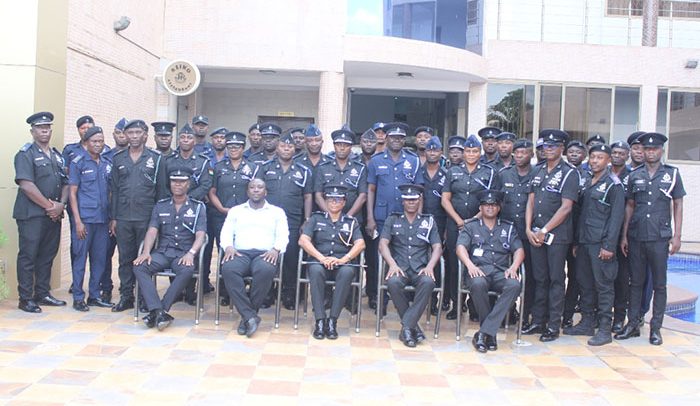Forty police officers drawn from various units have begun a five-day training in community policing concept.
The training forms part of efforts by the police administration to equip officers to better manage the concept of community policing which will be rolled out in the various district police commands across the country.
Assistant Commissioner of Police (ACP) Laurencia Wilhelmina Akorli, the Director of the Community Policing Unit (CPU), at the opening of the training programme said about 120 officers are expected to be trained by close of this year.
She said the concept would help improve police-public partnership and promote proactive policing which would help in the prevention of crimes in the communities.
Participants included Chief Inspectors, Inspectors, and Community Police Coordinators, and it is aimed at equipping personnel with the new community policing concept.
The programme is under the auspices of the CPU of the Ghana Police Service, with support from German Development Cooperation (GIZ).
ACP Akorli stated that the training was a pilot project and began from Accra and Tema regions, and would be replicated in other regions.
She said community policing was the way to achieve proactive policing in the country.
“During community engagement, the police met with the opinion leaders and peer groups, to sit in consultation to address challenges of the communities and seek ways to address them,” she disclosed.
She assured of the Police Service continuous efforts through motorbike patrol concept, visibility among others to ensure that crimes were reduce in the communities.
The Technical Advisor and Community Policing and Accountability Officer of GIZ, Mr. Gideon Neequaye said GIZ in partnership with the Police Service was focusing in three areas of community policing, police accountability and training.
He commended the Police Service for their continuous support in ensuring peace and stability in the country, and stressed the need for stronger collaboration between the police and the public to prevent crimes.
By Linda Tenyah-Ayettey


